story by Liz Pacheco | illustration by Melissa McFeetersWhen Mabel Wilson and her mother moved to Gray’s Ferry in 1929, her cul-de-sac block was lined with rowhomes. Soon though, many homes were abandoned and the City tore them down, leaving behind a block of empty lots. Looking at these new eyesores, Mabel decided to do something.
“They began to use that lot for youth activities, vacation Bible school and community meetings,” explains Mabel’s son Stanley Wilson, pointing to a grassy lot across the street from Central Club headquarters, which was incorporated as a nonprofit in 1947. Under Mabel’s care, the empty lots became an unofficial community center. She offered classes in skills like typing and sewing, hosted picnics, and organized arts and crafts for neighborhood kids. She also planted gardens and taught how to grow vegetables, fruits and flowers, creating an edible urban oasis.
Mabel passed away in 2010 and since then Stanley has run the nonprofit. But now, due to Philadelphia’s laws on vacant land ownership, Mabel’s work and legacy are in jeopardy. According to the City, the lots Central Club uses are still vacant, and the organization must own the land to continue their work. Unfortunately, gaining ownership is a complicated process. In 2010, Central Club succeeded in acquiring eight privately owned lots, which also came with decades of tax debt. If the debt isn’t paid, the organization could lose title to the land and see the parcels go to sheriff’s sale.
Central Club’s story has become all too familiar in Philadelphia. There are currently 40,000 vacant lots in the city. They plague every neighborhood, encouraging blight and crime, and draining City funds. However, with so many lots ownership is difficult to track and the purchasing process so complex that people wait years, even decades to acquire rights; sometimes they don’t get them at all.
But there is good news. Philadelphia has found a potential solution. This past October, Pennsylvania passed a bill that allows cities to create a land bank—a single entity that would organize, track and sell City-owned vacant property. The land bank would also be able to take ownership of privately owned, tax-delinquent property, like the lots Central Club uses, without a sheriff’s sale. Proponents of the bill are excited; a land bank could bring order, efficiency and transparency to the process. However, granting power to a single entity could potentially exclude important stakeholders, like urban gardeners and local nonprofits, from discussions on how vacant property should be used. In the meantime, the current system remains in place and the future of Philadelphia’s neighborhoods hangs in the balance.
Clean lots, safe communities
While vacant lots are spread throughout the city, 75 percent are concentrated in the second, third, fifth and seventh districts, which are largely in North and Southwest Philadelphia. Of these 40,000 lots, 10,000 are publicly owned, mostly by four City departments: the Philadelphia Redevelopment Authority, Philadelphia Housing Authority, the Department of Public Property and the Philadelphia Housing Development Corporation. Each agency has its own rules and policies for selling land parcels. The remaining 30,000 lots are privately owned. Each year, vacancies cost the City at least $2 million in uncollected property taxes and more than $20 million in maintenance fees. If developed, it’s estimated the lots could generate more than $180 million in economic activity and $35 million in new tax revenue.
Economics aside, managing vacant properties could mean a lot more for communities. Dr. Charles Branas, an epidemiologist at the University of Pennsylvania, has been studying the effects of vacant properties by tracking the work of Philadelphia LandCare—a City-funded program run by the Pennsylvania Horticultural Society (PHS). The program works on a piecemeal level, cleaning and greening individual lots that have violated City codes. In studying almost eight million square feet of vacant properties transformed by LandCare, Dr. Branas found that in some areas residents were less stressed and exercised more. More significantly though, he found that in all neighborhoods where the program had operated gun violence decreased.
“If you’re walking down the block and five of these [lots] have been done, it’s a pretty big visual shift,” says Dr. Branas, who notes that these aesthetic changes provide fewer places for illegal guns to be hidden. “We think that really has a shift in the opportunity for gun violence in the surrounding space.”
In the LandCare program, PHS chooses lots in neighborhoods with a poor or declining real estate market that show promise because of their relationships with community organizations or local institutions. “The way that we view our program is that it’s not a clean-up program, but a community development program that will expand the opportunities for investment in the neighborhoods of Philadelphia,” explains Bob Grossman, director and co-creator of the program. PHS also operates a Community LandCare program in which community organizations enter into a contract with the City to enlist neighborhood residents in cleaning and maintaining vacant lots. Over the program’s 12 years, more than 10 million square feet have been cleaned.
Inside the community gardens of the Norris square Neighborhood Project. The nonprofit, which was founded in 1974, is still struggling to gain ownership of the vacant lots they’ve been gardening on and using as public community space for the past 25 years.While the PHS program is making progress in cleaning up vacant lots, there’s another, less formal movement to revitalize these spaces: urban gardening.
“We have used our gardening as a way of managing vacant land within the community,” says Reed Davaz McGowan, executive director for the Norris Square Neighborhood Project (NSNP). The nonprofit, located in a primarily Puerto Rican neighborhood in North Philadelphia, was founded in 1974 with a mission to provide community members with a space to grow produce and celebrate their culture, but also to clean up vacant lots, reduce crime and develop a more positive public space for residents.
“When people wouldn’t go into Kensington,” says McGowan, “we made something beautiful.” Today, NSNP has six culturally themed gardens that attract visitors from all over the world. Their largest garden, Las Parcelas, was built on 21 rowhome lots formerly used by drug dealers as an open air market. Las Parcelas now hosts gardens, a fully functioning kitchen, a chicken coop and various community spaces, including La Casita, a small home that represents life in Puerto Rico in the early 20th century.
NSNP has been using the Las Parcelas lots for more than 25 years, yet doesn’t have full ownership of the land. “In everything but the deed they’re ours,” says McGowan. “[For] more than 10 years we’ve been working on these lots the City considers us responsible for, but hasn’t passed on the title to yet.” In fact, the City administration fully supports NSNP’s work; Mayor Nutter has visited multiple times and recognized the gardens as models for other communities in Philadelphia. The delay is a result of the vacant lands ownership process.
Struggles Within the System
If a lot is privately owned, applicants must first find the owner. This alone can be very time-consuming because ownership records are often missing or inaccurate. Applicants can then file what is known as an expression of interest and wait to see what happens; there’s no timeline for processing lot ownership requests.
This summer, purchasing publicly owned land did get a little easier thanks to the Redevelopment Authority’s new “Front Door” policy. Under this policy, individuals can make a single application for purchase. The policy includes a new online map (phila.gov/pra) that shows what properties are available for purchase, and reinstated the side yards program, which allows residents to purchase adjacent lots for one dollar, plus transfer expenses. Despite these improvements, applicants must still deal with individual agencies once through the “front door.”
“There’s not a plan for [vacant land redevelopment] at the city level, it’s being created as it’s going along,” says McGowan. “We may be informing process at the same time as we’re struggling with the process. And I think it’s just hard because people don’t know what to do.”
Central Club has found itself in a similar, although perhaps more dire, situation. Despite decades of work, the nonprofit is being asked to pay backdated taxes or rescind their rights to the land. “Without Central Club [the lots] would’ve been blighted. They would’ve been seized for short dumping or drug activity, or they wouldn’t have even been demolished,” says Amy Laura Cahn, a lawyer at the Public Interest Law Center of Philadelphia who specializes in defending the interests of community gardeners.
In the 80-plus years Central Club has been operating, there has been no violence on the block. “We still have youth activity going on here because is there is absolutely nothing in this community,” says Wilson. “There is no recreation center. There is actually no senior citizens center.” Even newly formed community organizations ask to use the Central Club lots for youth activities, says Wilson.
Despite the positive and long-standing relationship the organization has maintained with the community, they’re now struggling to keep ownership of the land. Since Central Club has been a nonprofit since 1947, they’ve had some success in gaining retroactive exemption for the taxes they inherited. However, the lots are still at risk of going to sheriff’s sale.
Cahn works with both NSNP and Central Club. Part of her job is to make sure these organizations maintain the rights to land they’ve occupied for decades. In Philadelphia, gardeners have done work that would have cost the city millions. They’ve cleaned and greened vacant lots, providing positive community spaces, educational opportunities and affordable food access. Yet, explains Cahn, gardens are still considered an “interim use” for vacant lots, eventually to be replaced with a commercial property or housing development.
“The City hasn’t recognized gardening as something that needs to continue,” she says, noting that buildings are still considered the best use of land. There are currently 350 known gardens in the city on 750 vacant parcels. Of those 350 gardens, 70 are in jeopardy of losing their land. With a land bank, gardeners could more quickly and easily obtain the rights to land, protecting their efforts for the long-term; no more sheriff’s sales or developer threats.
Developer wants and community needs
Although discussions began in 2008, Philadelphia’s land bank bill was first proposed in February 2012 by Councilwoman María Quiñones-Sánchez and Councilman Bill Green. Simultaneously, a bill was presented on the state level by Rep. Paul Taylor (R-Phila.) that would provide authorization for city-level land banks.
“I think it’s a game changer, similar to what tax abatement was at a time when we needed to stir development,” says Quiñones-Sánchez. “Land is the biggest asset or tool we can bring to a redevelopment strategy, and so the ability to manage what we have and proactively create pipeline projects and the ability to get a hold of these 30,000 privately held vacant and blighted structures, is huge for a city like ours.”
Under this legislation, the Philadelphia Redevelopment Authority and the Philadelphia Housing Development Corporation would transfer their properties to the land bank, and the City could take ownership of tax-delinquent, privately owned properties. An overall governing agency hasn’t been chosen, but there would be a board that hopefully includes development experts and community representatives. The land bank promises the organization and efficiency that has so long eluded the vacant land process—a change that could give the 40,000 vacant lots real potential.
It’s not just urban gardeners welcoming the possibility of a land bank; the development community has shown their support as well. “The value of that land is not having the City hold it,” says Anne Fadullon, vice president of the Philadelphia Business Industry Association. “The value of the land is that [it] gets redeveloped and put back to active use for the City.” The association, whose members include builders, developers, materials companies and real estate agents, among others, is frustrated with the current system’s ability to stymie new development.
“Our key goals [for] the land bank,” says Fadullon, “are to make sure that it’s transparent and predictable.” They hope the land bank will clearly define who’s involved in reviewing an ownership request and put a specific timeline on the process, allowing development projects to be approved and built more quickly.
However stakeholders outside the private sector have other concerns. “Some people feel very, very strongly that affordability and accessibility [should] be built in the legislation,” says Quiñones-Sánchez. “If in fact the City wants to create a sustainable city for everyone, then we have some realities—poverty. And we want to ensure that everyone, rich or poor, can live in any part of the city.” She believes the land bank should create a planning process that ensures affordability and accessibility everywhere.
A hearing for Philadelphia’s bill is tentatively set for February 5, and there is optimism that it will pass. But while City Council is necessary to pass this bill, they could also be the biggest obstacle to its success. If individual Council members hold too much power in making land bank decisions, there would be little opportunity for other stakeholders, like those in urban agriculture or nonprofits, to be heard.
“It could work. I’m hopeful,” says Cahn. “But I think it’s a question of priority setting… We need things that are community driven. We need things that provide green space and food. We need affordable [housing]. We need all of these things. So there needs to be a vision of not just how we get the land sold, but how we want our city to look.”



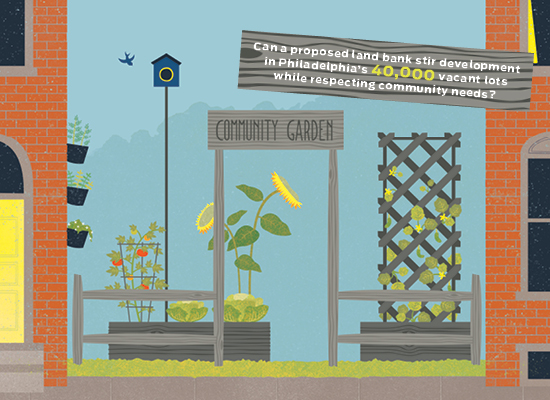
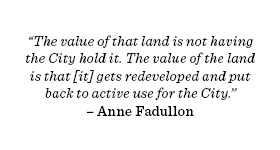
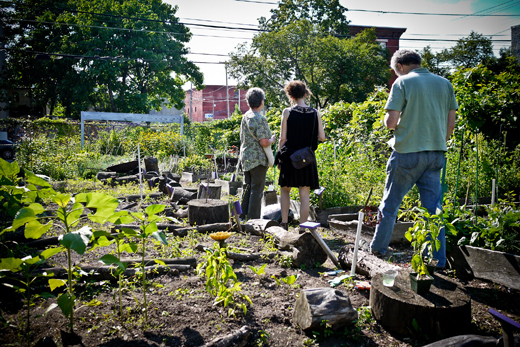
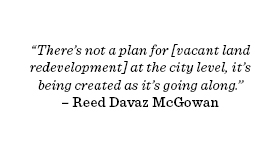
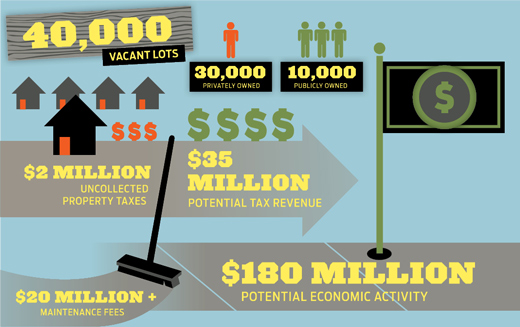
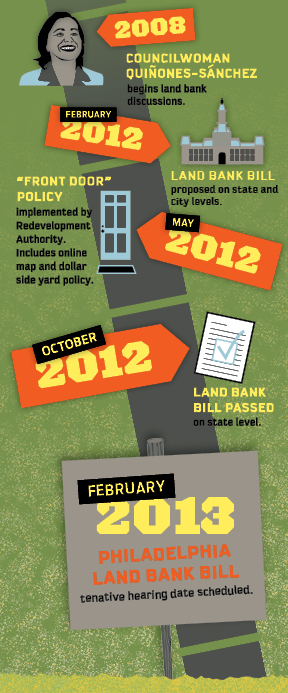
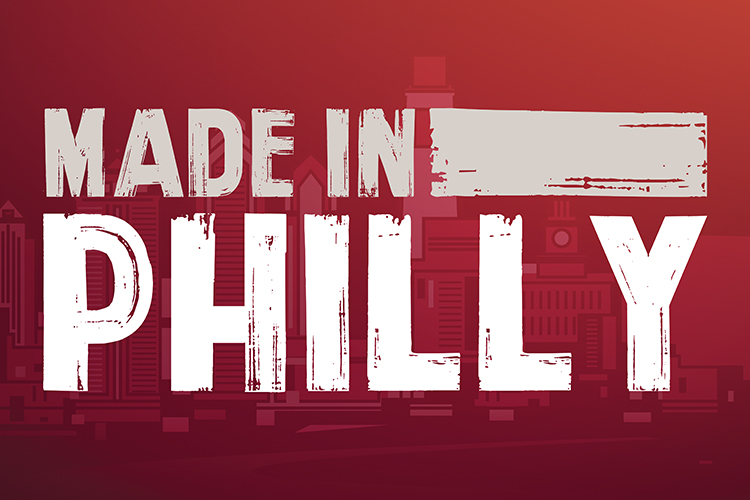
I hope the bill gets signed , however this doesn't mean we shouldn't hunt down the owners
That owe lots of money to the city . Any city employee that owns back taxes and property should be forced to pay immediately or get fired and sued or have their pension garnished.
The reason there's no clear system s because when you turn on the light of transparency
All the roaches are revealed and scatter..
I hope the bill gets signed , however this doesn't mean we shouldn't hunt down the owners
That owe lots of money to the city . Any city employee that owns back taxes and property should be forced to pay immediately or get fired and sued or have their pension garnished.
The reason there's no clear system s because when you turn on the light of transparency
All the roaches are revealed and scatter..
I wish the bill gets signed asap
cooooooooooool blog!!!!!!!!
cooooooooooool blog!!!!!!!!
Awsome Blog !
J.
Awsome Blog !
J.
Good luck
Mabel passed away in 2010 and since then Stanley has run the nonprofit. But now, due to Philadelphia’s laws on vacant land ownership, Mabel’s work and legacy are in jeopardy. According to the City, the lots Central Club uses are still vacant, and the organization must own the land to continue their work.
Mabel passed away in 2010 and since then Stanley has run the nonprofit. But now, due to Philadelphia’s laws on vacant land ownership, Mabel’s work and legacy are in jeopardy. According to the City, the lots Central Club uses are still vacant, and the organization must own the land to continue their work.